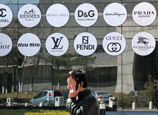
US President Barack Obama has called for additional revenue as part of a balanced plan to reduce future budget deficits.
But he is also proposing a significant cut in the corporate tax rate.
To many, this approach seems inconsistent: Shouldn't the corporate tax rate be raised so that corporations contribute their "fair share" to deficit reduction?
The answer is no.
After its 1986 tax overhaul, the US had one of the lowest corporate tax rates among OECD countries. Since then, these countries have been slashing their rates in order to attract foreign direct investment.
In the most recent and audacious move, the British government has embarked on a three-year plan to reduce its corporate tax rate from 28 percent to 20 percent - one of the lowest in the OECD - by 2015.
The US now has the highest corporate tax rate of these countries. Even after incorporating various deductions, credits, and other tax-reducing provisions, the effective average and marginal corporate tax rates in the US - what corporations actually pay - are higher than the OECD average.
Cutting the rate to a more competitive level would encourage more domestic investment by US corporations, and would make the US more attractive to foreign investors. Higher investment in the US by domestic and foreign companies would boost economic growth.
That should, in turn, boost real wages over time (although the link between productivity growth and wage growth has weakened during the last two decades).
The pro-growth rationale for reducing the US corporate tax rate is compelling, and explains why Obama has proposed cutting it from 35 percent to 28 percent (roughly the weighted average rate of the other developed countries).
Costly cut in rate
But a rate cut would be costly in terms of foregone revenues: each percentage point would reduce corporate-tax revenues by about US$100 billion over the next decade.
Moreover, recent studies indicate that a significant share of the corporate-tax burden falls on capital, so a reduction in corporate taxes would weaken the progressivity of the tax system at a time when income inequality is at an all-time high.
For these reasons, Obama is championing a "revenue-neutral" reform that would leave corporate-tax revenues unchanged, with the proposed rate cut financed by limiting deductions, credits, and loopholes, which would broaden the tax base.
Within the corporate sector, the three largest domestic tax preferences are the manufacturing production deduction, the credit for research and development, and accelerated depreciation of capital.
Manufacturing companies are the major beneficiaries of these preferences, and Obama has proposed strengthening the first two. He suggests reforming the third by tightening allowances for accelerated depreciation in order to offset some of the revenue losses.
Likewise, while limiting the deductibility of net interest for corporations would broaden the tax base and discourage excessive reliance on debt financing, it would increase the tax burden on major investments in physical capital, which are often debt-financed.
Reducing the tax preferences for non-corporate business entities (such as partnerships) that pass their income through to their owners' individual returns would also broaden the tax base subject to the corporate-income tax. Pass-through companies now account for more than 80 percent of net business income (by far the highest share in the developed countries).
Several of these entities are very large and profitable, and enjoy the same legal benefits as corporations. Economic logic suggests that businesses of similar size and engaged in similar activities should not pay different tax rates based solely on their organizational form.
The fact that a large share of business income is currently taxed as personal income makes it difficult to separate corporate tax reform from personal tax reform, as Obama and members of Congress would prefer to do.
Moreover, keeping the two areas of reform separate rules out the approach adopted by several other developed countries, which have offset some of the revenue losses from cutting corporate tax rates by increasing taxes on corporate equity income at the personal shareholder level.
This approach is both more progressive and more effective: with highly mobile capital, it is easier to collect taxes from individual citizens and resident shareholders than from multinational companies.
Laura Tyson, a former chair of the US President's Council of Economic Advisers, is a professor at the Haas School of Business at the University of California, Berkeley. Copyright: Project Syndicate, 2013.www.project-syndicate.org. Shanghai Daily condensed the article.
















 Huge rubber duck visits Hong Kong
Huge rubber duck visits Hong Kong


![]()
